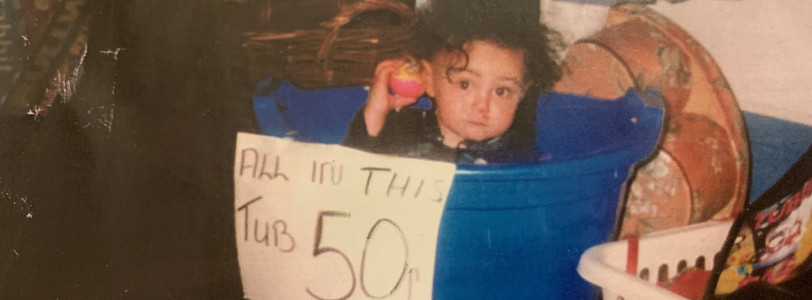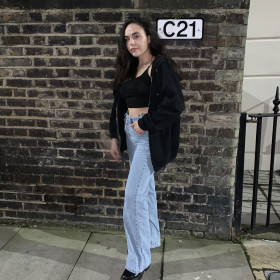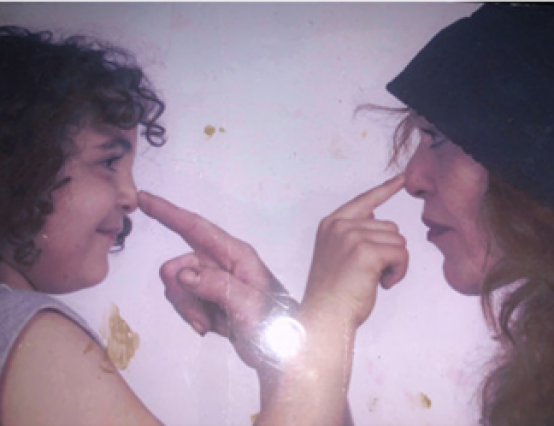Growing up, clothes and labels were never important. My mum set this example early on, and I heard it loud and clear. Buying new clothes wasn't really in our financial remit. The pace is extremely fast, trends change constantly, and children are very quick to judge. Looking symmetrical to others seemed normal, and children, in their unfiltered delivery, would make you aware that it was expected. Not wearing what others were wearing seemed to be an invitation for further questions.
In between the rather bizarre questions, I started to realise that buying second-hand from the local charity shop was deemed “dirty”. I couldn't quite comprehend it. Had I simply walked into a lower status based on this second-hand clothing that mum had bought for me? With my peers coming into school with bows in their hair, not a hair out of place, the “charity shop kid” felt even more plastered over my name.
Those dirty looks in school made me think I was the odd one out. “Why doesn't your jumper have the logo? '' they would ask. White in the face, I didn't have a response. During those primary years, where we all look the same with little character portrayed in the way we dress, I was the poor one who didn't wear the logo. Mum said it wasn't important; we could simply buy a jumper with school colours. I knew before I even put on the cheaper version of the jumper, all eyes would be on me. Teachers may even look at me and think that my mother was unfit to provide. All of these thoughts about what this would mean for my character, when in fact, it was just a logo missing.
I didn't know any different though. Mum used to teach me about sustainability and what works better for the environment, so I knew shopping in the charity shops had broader benefits, even if I did receive a few dirty looks from the popular girls.
Aside from the external pressure to fit in, when it was just me, I would get lost in the racks of endless, affordable choices. I started to recognise the value of money and learn about the positive impact sustainable shopping had on the environment.
Looking back at the embarrassment that I used to feel when going into charity shops and feeling like the token second-hand child in school, it's amazing how much we have all evolved in society. At present, the vegan movement is much stronger, and social media platforms advocate for sustainability, which seems to be in constant growth.
A shift in mindset
The “thrift movement” in itself has changed dramatically. We have vintage, thrifting and charity shops. Whatever term you use, it does not sugarcoat that it is, in fact, second-hand. I can't help but wonder if shame remains an undertone, and that is why we have these fancy and misleading terms. Regardless, growing up and feeling accepted feels like an inevitable need during those fragile years, and I can't help but find it amusing. The time and energy I spent worrying about running into a familiar face before entering a charity shop was all for nothing.
People from all over, from different class backgrounds, and cultures, doesn't seem to hinder people's ability to be open to second-hand anymore. In fact, it's trendy. It's almost obligatory to go to all the token vintage shops in Brick Lane or Camden. It has become an attraction, as well as a thrill for many. Seeing that shift in mentality is so heartwarming to see, but perhaps it was always accepted? As a child, in an enclosed environment like Canterbury, every move was magnified, and everything felt judged. London life is such a contrast to this small-minded way of thinking about how we dress and where we buy our clothes from.
As a vegan and far more aware of the environmental crisis, buying second hand holds much more value than being the cheaper option. As we start moving towards a more sustainable living space, it is important to recognise how much it has changed for the better. While at present it's a part of the London scene to go to the second-hand shops, expressing the personal connotation with it as a child, highlights other issues of judgement and categorisation.
.









0 Comments